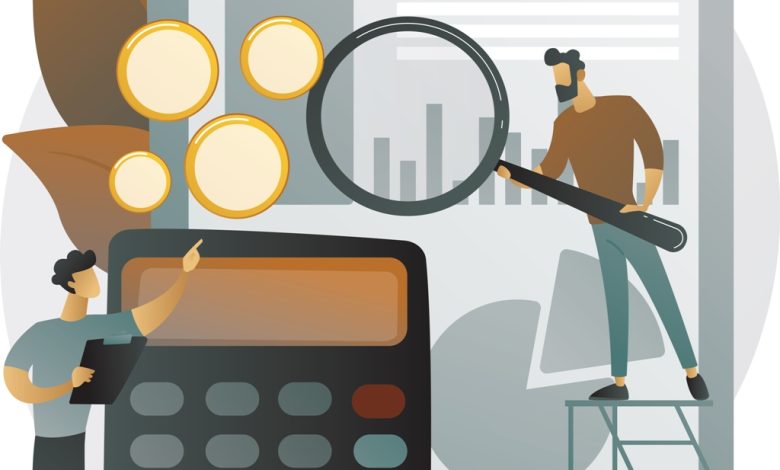Managing the purse

Our public finance is quite problematic. While the Department of Finance (DoF) is pretty hard at work raising money for the national budget through taxes and better tax administration, it is not always enough. Higher public spending is crucial in fighting the pandemic and further strengthening the momentum of business activities. The Bureau of the Treasury (BTr) borrows from the capital markets here and abroad to finance the budget deficit.
This is the primary reason why in the past we would always insist that higher credit ratings are essential. Since we started to receive credit upgrades in 2012, the credit spreads on sovereign borrowings and private corporate debt have tightened. With stronger confidence in our macroeconomic fundamentals, foreign investments started to climb. However, our weak pandemic response reversed the country’s 20-year impressive advance by the downgrade of the country’s outlook from stable to negative.
If the House of Representatives’ initiative pushes through to scrap the excise taxes on diesel, kerosene, and liquefied petroleum gas (LPG), reduce them on low-octane gasoline and retain them on high-octane gasoline, the National Government (NG) estimates its loss at some P38 billion in six months. Last month, though, the DoF’s computation for one full year of tax suspension stood at P147 billion in excise tax and value-added tax, or around 8% of the expected budget deficit of P1.86 trillion this year.
Without a compensatory revenue measure, this much will have to be covered by borrowings. Budget realignment might be difficult to pursue because obviously the other elements in the budget must have already been earmarked.
This must be one of the reasons why the NG and Congress are scrounging for additional revenues. For instance, Congress proposes through House Bill 7425 to impose a value-added tax on digital transactions by amending relevant portions of the National Internal Revenue Code. In the same spirit, the DoF is also sounding the call for proper regulation and taxation of fintech companies. Working with both the Bureau of Internal Revenue and the Securities and Exchange Commission, DoF is also collaborating with the Department of Trade and Industry “which has done a lot of groundwork on fintech.” Whether this new proposal is already covered by the House bill is something that should be threshed out by both Malacanang and Congress to avoid overlaps and more market worries.
While both measures could raise potential revenues, the NG should balance them with their potential impact on digital transactions which were found to be extremely helpful during the lockdown. Taxation of digital transactions and fintech companies is now the subject of many public debates in several member countries of the International Monetary Fund. Cross-border transactions involving at least one digital firm which may not be necessarily headquartered in Manila makes this fiscal measure more complex than it appears.
These initiatives may indeed yield some dividends but only in the future, and definitely not this year.
This must be the reason why BTr decided to raise P114 billion from the capital market the other day, one among many, through the five-year-and-a-half retail treasury bonds (RTBs). In February, the NG also sold P463.3 billion in three-year maturity. There were previous external borrowings by NG in euro and Samurai bonds. All in, planned borrowings could easily amount to P3 trillion to cover an expected P1.9 trillion deficit or around 9.3% of GDP. For the first eight months of 2021 alone, the NG has borrowed P1.8 trillion, P1.5 trillion from domestic sources and P300 billion from external sources.
We could just imagine the consequent debt servicing requirements in the succeeding years to cover both principal and interest, all because of some populist inclinations prevailing in the House today.
But public finance could also be messed up when the Department of Budget and Management (DBM) is less than fastidious in screening each and every proposed line item of public spending. That is the job of the budget department: to prepare the budget and to manage it well.
A large part of our fiscal woes today is precisely due to the failure of the DBM to keep the gates. The devil in the budget details appears to have been ignored. For instance, there should be some space for scrutinizing each and every proposed Build, Build, Build infra project, both big and small, but definitely some are critical and more urgent than others. The pandemic budget is another. While it would be good for transparency for the DBM to disclose how much was budgeted for vaccines and protective gear, it is also important to keep a close watch on the large part of the budget lodged with the Procurement Services (PS) of the DBM itself. This is the origin of the Pharmally scandal. This is the origin of the many unexplained audit findings of different government departments engaged especially in common-use big-ticket items. In some cases, extra-ordinary items have been reclassified as common-use and therefore may be procured by PS itself.
In fact, in the recent Senate hearing on the budget of the Department of National Defense (DND), another smoking gun was found. The DND had parked P10 billion worth of funds with the PS-DBM and the Philippine International Trading Corp. (PITC) for the procurement of “needed supplies and equipment.” Senate Minority Leader Frank Drilon and his colleagues questioned the Armed Forces’ decision to allow these two agencies to do the procurement for them “when its personnel have better expertise in the procurement of military supplies.”
Earlier, Senator Ping Lacson called to task the DND about its “anomalous” practice of parking huge funds for various procurements with the PITC but seeing these ending up unspent and undelivered. In so many words, it is almost criminal to have those funds sitting idly outside the DND while the NG is racking its brain squeezing every peso from all line items and borrowing heavily to manage the pandemic and ensure the resumption of business activities. The Commission on Audit, according to Senator Lacson, has already flagged the unliquidated cumulative amount of P8.523 billion out of P15.9 billion lodged with the PITC in the last 13 years.
What is unconscionable is that in 2019 and 2020, the PITC did not deliver anything to the military, while charging 4% for service fees. We don’t need rocket science to figure out that the military was better off doing the procurement itself. And certainly, we don’t need rocket science to determine why this practice persists to this day.
Another potential leakage in the budget is the proposed funding of the anti-insurgency task force amounting to P24 billion in 2022, coinciding with the national election. This amount would have granted funds to identified insurgency-cleared barangays “to implement community-driven socio-economic development projects.” Insurgency-free barangays would have been entitled to P20 million each for such projects as farm-to-market roads, school buildings, water and sanitation systems, reforestation, and health stations. The DBM should ensure that these are not duplicative of both national and provincial spending for similar projects, and would not be diverted to election-related spending.
The Senate therefore must have a compelling reason for deciding to slash the original budget of P24 billion to only P4 billion. That is a big savings that could instead fund health and other social needs of the population, or as much in less borrowings by the BTr.
If we put these fiscal dynamics together, we would agree with such observation that fiscal consolidation in the Philippines “is going nowhere.” Public revenues are effectively waived in the spirit of populism, while leakages persist under a culture of corruption and bad governance. One unavoidable outcome is greater reliance on borrowing until debt sustainability metrics are breached. We hope we are wrong, but when that happens, pronouncements about those concrete signs of economic recovery might be premature, or aspirational at best.




